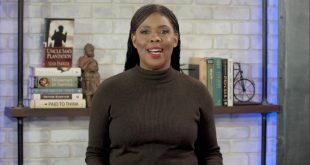 Years ago I read a Shelby Steele column on white guilt and black individuality. The portion that settled deep into my mind was where he mentioned a CPAN debate on racial preferences. During the Q&A, a black student who approved of his government treating individuals differently based on race (double-edged sword) tried to challenge the preferences opponent.
Years ago I read a Shelby Steele column on white guilt and black individuality. The portion that settled deep into my mind was where he mentioned a CPAN debate on racial preferences. During the Q&A, a black student who approved of his government treating individuals differently based on race (double-edged sword) tried to challenge the preferences opponent.
“Once standing, this young man smiled unctuously,” Steele writes, “as if victory were so assured that he must already offer consolation. But his own pose seemed to distract him, and soon he was sinking into incoherence. There was impatience in the room, but it was suppressed. Black students play a role in campus debates like this and they are indulged.”
Steele asks us to consider what this young black student was doing as he argued in favor of preferential treatment (emphases added).
“All that is creative and imaginative in him must be rallied to argue the essential weakness of his own people. Only their weakness justifies the racial preferences they receive decades after any trace of anti-black racism in college admissions. The young man must not show faith in the power of his people to overcome against any odds; he must show faith in their inability to overcome without help. As Mr. Connerly points to far less racism and far more freedom and opportunity for blacks, the young man must find a way, against all the mounting facts, to argue that black Americans simply cannot compete without preferences. If his own forebears seized freedom in a long and arduous struggle for civil rights, he must argue that his own generation is unable to compete on paper-and-pencil standardized tests.”
These are very important points. Despite high-toned, civil-rights-industry rhetoric on “structural racism” and what black Americans are still owed, the speaker essentially is arguing that blacks are too dumb or helpless to achieve without help from the government. There is a stark absence of pride. Some blacks complain about negative stereotypes in the same breath as advocating the continued use of lowered standards.
I think about Shelby Steele’s article every time I hear a liberal playing the race card with voter ID. It’s not merely disingenuous; it’s shameless. People need a picture ID throughout their lives. They can’t get on a plane without one. They need one to cash checks and even enter the U.S. Department of Justice building, which opposes voter ID laws. Why can’t “the poor,” the elderly, or racial and ethnic minorities get themselves to the DMV to get a state-issued photo ID, which in some cases they can obtain at no cost?
When anyone, including the president of the United States, opposes the voter photo ID requirement for this reason, he’s saying that blacks are too dumb or lazy to do what is required of any responsible American citizen. And it’s the height of idiocy to equate showing a picture ID with poll taxes and literacy tests.
If I lived to be 200, I’d never understand why some black Americans accept such characterizations, then complain about negative stereotypes or wonder why people are fed up with their perceived grievances. What was the whole civil rights movement for if not to remove barriers and allow the individual to stand or fall on his own merits, without regard to race? What about pride and dignity? I’m not talking about surface-level, self-esteem pride, but the kind in which the individual demands that his government be race-neutral and not penalize or pander to him based on the color of his skin.
Photo credit: kayranft (Creative Commons)
 CURE News and Clergy Blog News and Commentary for Christians
CURE News and Clergy Blog News and Commentary for Christians



